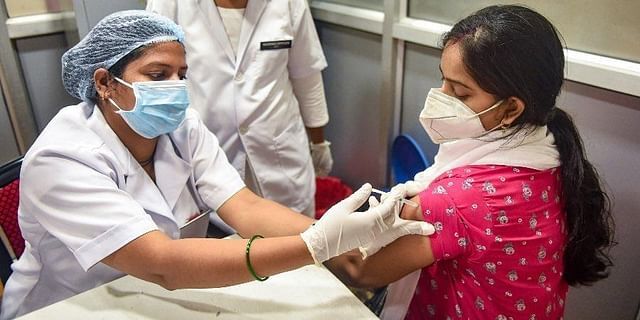Dine-in stopped as positivity reaches 25%, 17 more Covid-19 deaths in a day

New Delhi: As the daily positivity rate reached 25 per cent on Monday, the Delhi Disaster Management Authority imposed fresh curbs on restaurants and bars in the city — banning dine-in services — and the Delhi government planned to ramp up Covid bed capacity to 50,000 oxygenated beds based on estimates presented at the meeting on Monday.
At the DDMA meeting, officials said the city may need 28,000 oxygenated beds and 18,000 ICU beds in the worst-case scenario of 1 lakh new cases showing up daily. In case the city reports up to 75,000 new cases a day, 21,000 oxygenated beds and 13,500 ICU beds may be needed. If 50,000 cases a day are reported, 14,000 oxygenated beds and 7,200 ICU beds may be required, according to projections made by Sutra — a mathematical model developed by scientists at IIT Kanpur and IIT Hyderabad.
The model predicted that Delhi is likely to record 35,000 to 70,000 infections at the
peak of the third wave around January 15.
But even as the authorities insisted that this wave was seeing fewer hospitalisations and deaths due to the virus, the official health bulletin reported 17 deaths in a day, further pushing the death toll up. Active cases in the city are now above 65,000.
And as cases show no signs of ebbing any time soon, the DDMA has also decided to enforce Covid-appropriate behaviour more vigorously after finding that many were being careless and irresponsible in large public spaces.
Baijal said officers were advised to strictly ensure people wear masks and adhere to social distancing norms in markets and public areas to break the chain of transmission. But more significantly, the DDMA meeting also discussed the possibility of reducing the passenger capacity in public transport like Delhi Metro and buses.
While there are currently 16,180 oxygenated beds and 3,619 ICU beds in hospitals across the Capital, the escalation has been planned in phases. The number of oxygenated beds will be increased to 28,645 in the first phase, to 37,000 in the second phase and to 50,000 in the third phase. The number of ICU beds will be increased to 8,041 in
the first phase, to 10,594 in the second phase and 12,059 in the third phase.
Moreover, official data showed that over 5,000 Covid beds were still available across special Covid care centres. Of the 5,539 beds available, 561 are occupied. At the centres in Shahdara, northeast, west, north, none of the beds are occupied.



